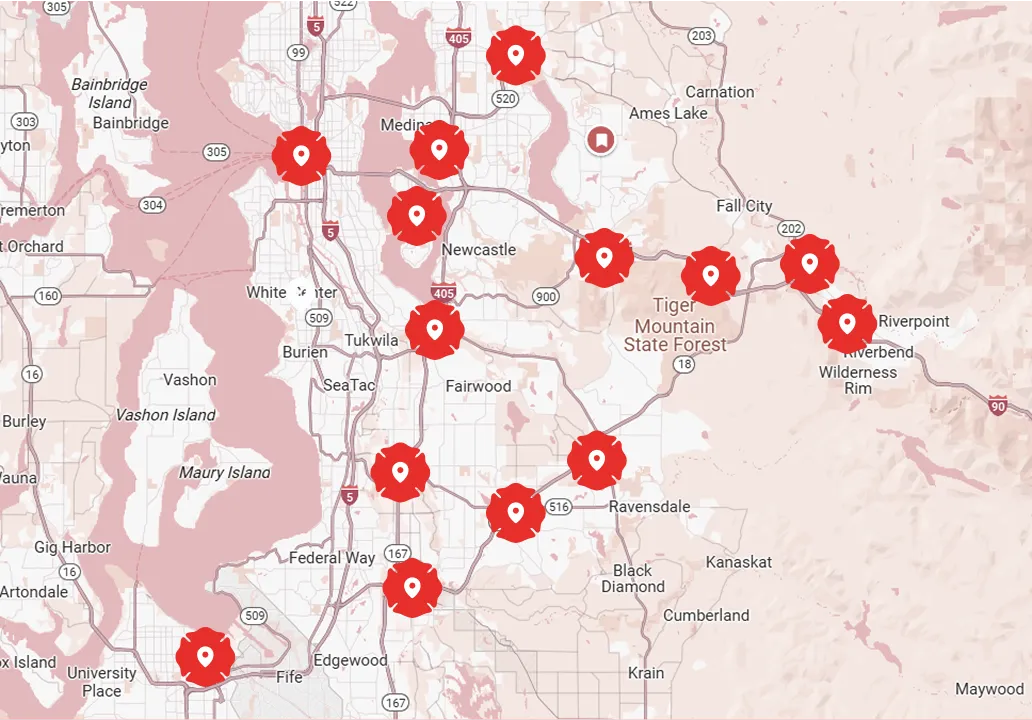Interstate Movers in Bellevue, WA
.webp)
Interstate moves from Bellevue require thorough coordination, regulatory awareness, and detailed financial planning to ensure a smooth transition. Professional movers manage essential compliance elements, including federal registrations, binding and non-binding estimates, and the Bill of Lading, while helping clients choose appropriate valuation and insurance coverage. This process also involves preparing key documentation—such as identification, inventory lists, receipts, and delivery orders—to streamline communication and prevent delays. Early scheduling is highly recommended, with attention to pickup windows and flexible delivery timelines influenced by route conditions, seasonal weather, and local access factors within the Bellevue area. With organized preparation and transparent coordination, residents can navigate interstate relocations confidently and efficiently.

Moving Interstate Movers in Bellevue, WA
Relocating from Bellevue, WA to another state is a complex logistical and regulatory task. For homeowners and professionals in Bellevue, understanding how interstate movers handle regulatory requirements, estimates, insurance, scheduling, and documentation is essential to avoid delays, unexpected costs, and stress. This page explains what to expect from interstate moving services, how estimates reflect distance and labor, what paperwork you will need, and practical preparation tips tailored to Bellevue moves.
Why professional interstate moving matters for Bellevue residents
Bellevue moves often involve long drives across mountain passes, multiple tolls and ferry options for certain routes, and scheduling around regional weather patterns like heavy rain or winter snow. Interstate moving specialists are familiar with federal rules and state-to-state logistics, giving you predictable transit times, compliance with Department of Transportation requirements, and clear liability options for valuable household goods.
Common interstate move scenarios from Bellevue
- Tech professionals relocating to other states for jobs, often with tight timelines.
- Families moving for schools or lifestyle changes, transporting furniture and household goods.
- Military or government transfers requiring adherence to strict inventory and scheduling rules.
- Long-distance moves that include storage-in-transit or staged delivery windows.
Regulatory and DOT requirements for interstate moves
Interstate moving carriers operate under federal oversight. Key points to understand:
- Carriers must be registered with federal authorities and display their USDOT or motor carrier numbers. This registration confirms the mover is authorized to transport goods between states.
- A written estimate and a Bill of Lading act as the official contract. The Bill of Lading documents services, agreed pricing terms, and the mover s responsibilities.
- Movers must provide clear information about valuation and liability options so you can make an informed choice about coverage.
- Federal rules require disclosure of consumer rights and estimates in writing. Keep all provided documents; they govern responsibility for loss, damage, and dispute resolution.
Documentation you will need for a state-to-state move
Prepare these items well before moving day to streamline pickup and delivery:
- Valid government-issued photo ID for the primary mover.
- A detailed inventory list of household items, including high-value items noted separately.
- Copies of any purchase or ownership receipts for expensive electronics, art, or antiques.
- Signed moving estimate or order for service and the Bill of Lading at pickup.
- Proof of residence or lease if requested for access to buildings or gated communities.
- Insurance or valuation selection documentation indicating the level of liability you chose.
- Payment method and authorization details for final charges and potential accessorial fees.
Also review the list of prohibited items with your carrier (flammable liquids, certain hazardous materials, perishables) and arrange separate transport or disposal as needed.
How estimates account for distance and labor
Interstate estimates balance distance-based costs with labor and access factors:
- Distance and route: Longer haul miles are a major factor. Estimates often use either straight mileage or anticipated driving route. Mountain passes, ferries, and heavy traffic corridors can affect mileage and fuel usage.
- Weight or volume of shipment: Many carriers price by shipment weight or by truck space used. The more weight, the higher the fuel and handling costs.
- Labor and crew size: Number of movers, estimated hours for loading and unloading, and complexity of handling large or fragile items are included. Multiple flights of stairs, long carries from house to truck, and elevator restrictions increase labor charges.
- Additional services: Packing materials, full or partial packing services, appliance disconnect and reconnect, furniture disassembly/reassembly, storage-in-transit, and special handling add to the estimate.
- Accessorial charges: Long carries, shuttle service when large trucks cannot access a street, stairs, or special equipment needs are common extra items.
- Seasonal and fuel surcharges: High-demand periods and fluctuating fuel costs can influence final pricing.
Understand whether the estimate is binding (fixed price) or non-binding (approximate); ask for line items and assumptions so you can compare offers.
Insurance and liability options explained simply
Interstate movers offer different liability and valuation choices. Key distinctions:
- Released value protection: Basic, low-cost option that pays a nominal amount per pound per item. It is not full replacement value.
- Full replacement value protection: More comprehensive; the carrier is responsible for repair, replacement, or cash settlement for loss or damage. Premiums are higher and may vary by declared value.
- Third-party insurance: You may buy a separate policy from an insurance provider to cover better-than-carrier valuation or additional coverage for high-value items.
Before moving, inventory valuables and decide which items need higher coverage. Keep receipts and photos to document condition before the move.
Scheduling expectations and transit times
Plan ahead to avoid the Bellevue rush and seasonal delays:
- Book early: Interstate slots fill faster during summer and year-end transitions. Booking several weeks to months in advance is typical for peak seasons.
- Pickup windows: Expect a scheduled pickup date and an agreed window of hours for arrival. Movers generally request you be ready at that time to avoid rescheduling fees.
- Transit days: Actual transit time depends on mileage and route conditions. Typical coast-to-coast moves can take days to weeks. Ask your mover for an estimated transit window and check how they communicate updates.
- Delivery windows: Delivery is often scheduled in a multi-day window rather than a specific hour. Plan to be flexible, especially for urban delivery areas or locations with restricted access.
- Weather and road conditions: Bellevue moves can be impacted by winter snow over mountain passes or severe storms. Allow buffer time during winter months and monitor regional travel advisories.
Preparing for an interstate relocation from Bellevue
- Declutter and inventory: Reduce volume to lower costs. Photograph valuables and create a room-by-room checklist.
- Pack smartly: Label boxes by room and contents and note fragile items. Consider professional packing for fragile or high-value objects.
- Coordinate access: If you live in a condominium or gated community in Bellevue, reserve elevator time and secure parking permits for the moving truck.
- Prepare appliances: Defrost refrigerators 24-48 hours before moving and secure gas or water connections if needed.
- Protect floors and doorways: Use runners and door protectors in rainy or muddy seasons common in Bellevue to avoid damage fees.
- Plan for arrival logistics: Verify parking, loading zones, and any local permit needs at your destination state to prevent surprises.
Final notes on choosing interstate movers
Selecting a mover for an interstate relocation is about transparency, compliance, and predictable service. Focus on clear written estimates, documented valuation choices, a detailed inventory process, and a realistic schedule that accounts for Bellevue s regional conditions. Proper preparation and informed decisions minimize risk and make the long-distance transition smoother for your household.

